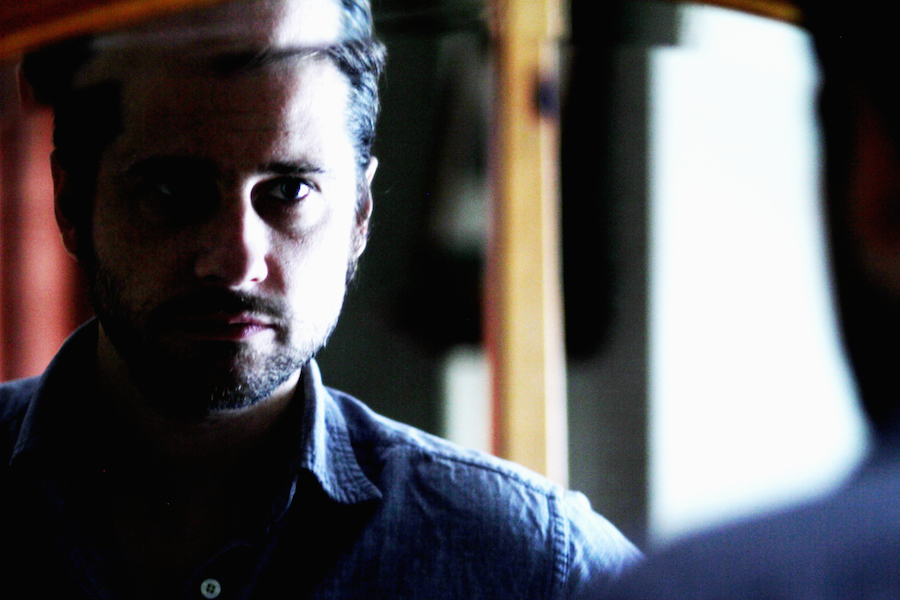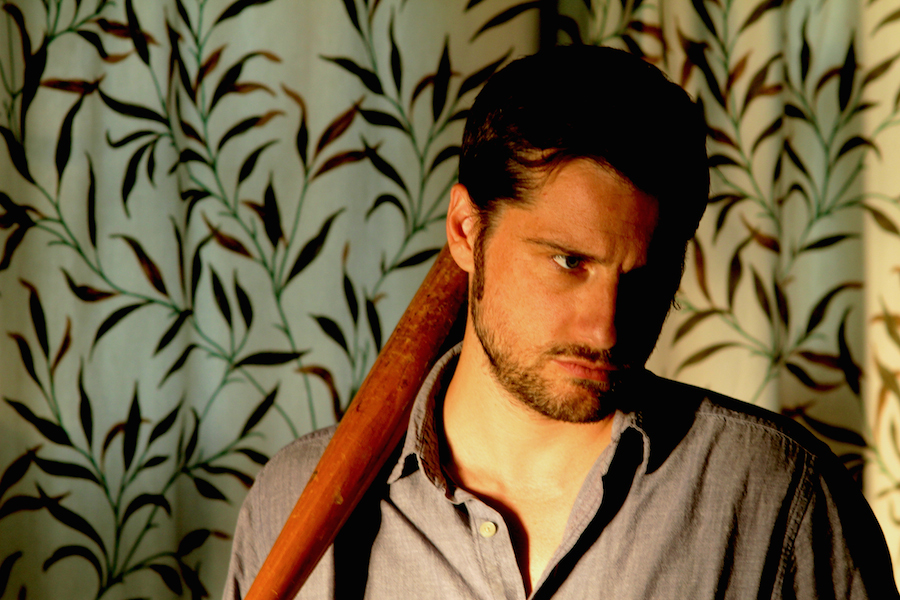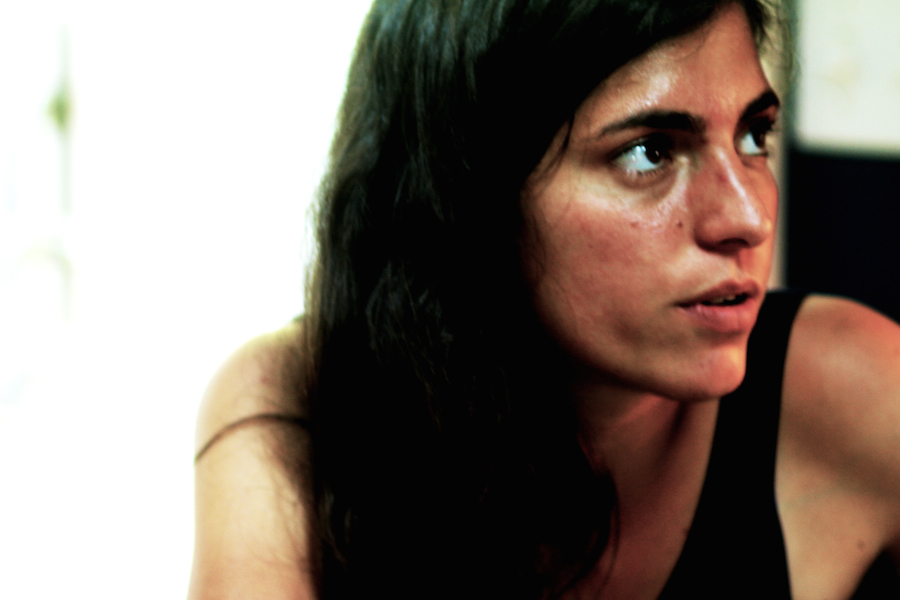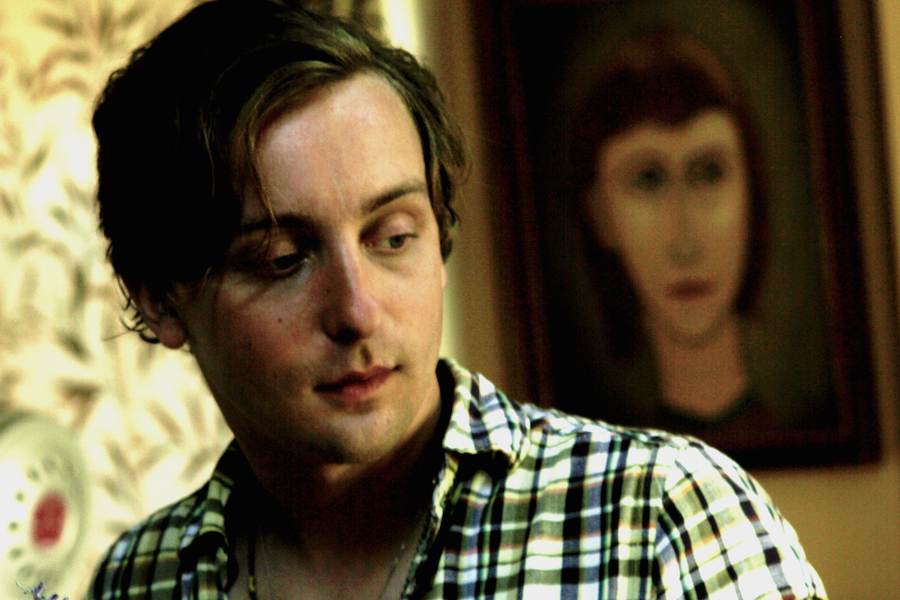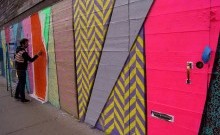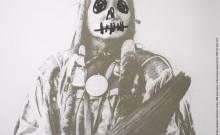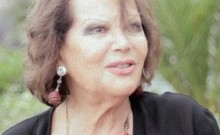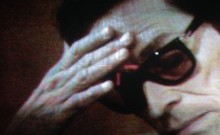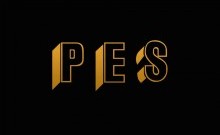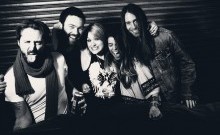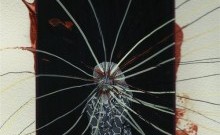Kentucker Audley: Capturing The Game
I've always been interested in how after you keep doing the same thing over & over again, hovering at a certain level for a little while, after that time you start to forget certain parts of yourself that you may be aware of. The same questions you ask in your work, the same conversations & dialogues you open up with whatever it is you do, as you stay dedicated to it, you begin to lose track of whatever method or theory you used at the onset. Whatever system you employed in your mind for articulating something, it becomes distant, even opaque as you keep going down the road further. You lose track of the fact that you have an identity to your work, that is clear to others. And so it goes.
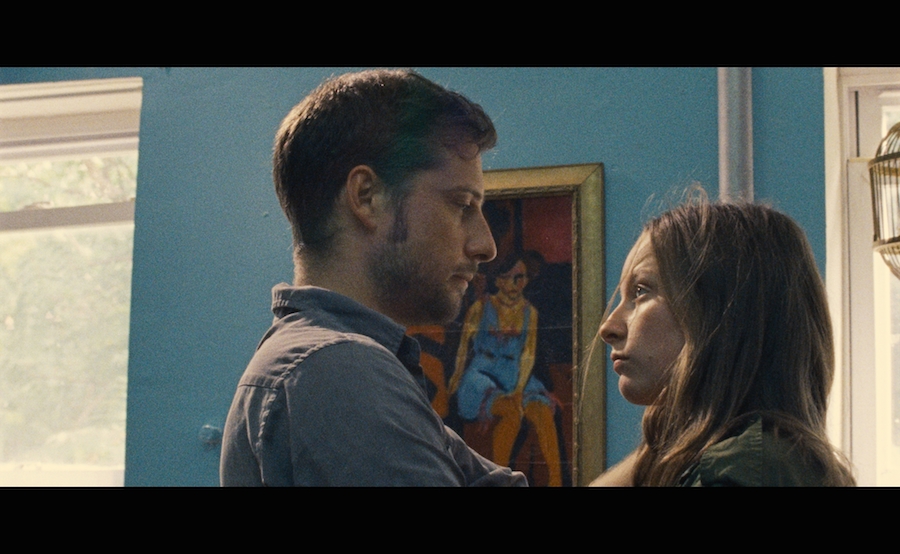
On the set of "Jonny Come Lately" [2014, post production]. Director, Francesca Coppola. Cast: Kentucker Audley, Deragh Campbell, Evan Louison.
I knew Kentucker Audley's voice, the way it sounded, the way it resounded through my head in echo, long before we actually met. Such is the way these things go: I had been to see a film called Bad Fever in 2012 at the now defunct Re-Run Theatre in DUMBO, invited by Eleonore Hendricks, who has a pivotal central role in the picture, & had drifted off in the middle of the movie. This often happens to me, & never has anything to do with the film itself (in this case, especially). I'll admit to this here as a bridge to elsewhere --- what woke me from my transgressive doze & shook me back to the dark of the theatre was a voice. The character of Eddie, a struggling (extremely struggling), stuttering, short of breath standup comedian, paced in a hotel room, performing his act for a prostitute. It was disorienting. It was heartbreaking. For some reason, I've never been able to disregard the memory of the way his voice sounded to me, so resolutely nervous, childlike & frantic.
from Bad Fever (2012)
I went to work, & at work I said,
"Hey buddy, how about a raise?"
& you know what he said?
He said, "Well, Eddie, I think
the first thing to a raise is you working more than one day a week!,"…
& I said,
"Sometimes I work just one day a week,
but there are times when I work two days a week, sir…"
--- I said, "Sir, I have a mother to raise sir…"
& he looked at me & he said:
"Well, maybe you shouldn't have had a mother."
------
Eddie was played by Kentucker, & is the first of many roles since (his part as Leo in Amy Seimetz' Sun Don't Shine (2012), & that of Patrick in Ti West's The Sacrament (2014) are also worth noting). This year he will also appear in Charles Poekel's Christmas, Again, which premiered to acclaim at the Locarno Film Festival in August.
November, 2012. It was immediately after Sandy, & New York was nearly closed for business completely --- impossible to get gas, a cab to the airport, impossible to tell if your flight would even take off. Still no power in Manhattan. An outlaw friend of mine gave me a ride to LaGuardia in his bread truck (diesel fuel was a lot less in demand). We somehow managed to drive into the military installation at the airport, unwittingly. They took one look at us, one of us with a full beard & the other with a massive kufiyah wrapped around him, & told us definitively we were in the wrong place. I swore up & down I had a ticket out of dodge & promised not to blow anything up. They let us go, looking on skeptically.
I found the right terminal, & made my way to IndieMemphis. I was there with Brandon Harris to show Redlegs, a film which Kentucker had apparently seen & championed to the festival programmers, unbeknownst to me. And yet he also was known to me in a certain way --- his voice, his manner & gait in the frame --- but to this he was oblivious as well. When we bumped into each other in some Memphis bar across from the movieplex that evening, for some reason it was like we had met already. Like we could skip the introductions.
There’s plenty of information out there to be gotten at, plenty of points at which you can access his persona. Over the course of a few years, he’s shifted seamlessly between projects & never once stopped producing his own films or promoting the work of others (Plenty of history, but no need to repeat those results here. K.E. founded No Budge Films in 02/11, to provide a venue for microbudget short & feature films) Since then we’ve gotten to work together twice. The most recent opportunity, Jonny Come Lately (dir. Francesca Coppola), is where this conversation took place. Just two of us who, as old as we are, still have only just begun.
EL: When somebody approaches you with a project, any project, do you ever wish it was a younger version of you, a younger person being approached? Like maybe when you were younger you were more excitable or more passionate, like "I wish I had had this at 25 to attack," rather than 30?
KA: Well I wasn’t really thinking about acting when I was 25. I never wanted to be an actor; I wanted to be a director. The first time somebody asked me to act, I didn’t think I could do it. That was Bad Fever. The character seemed out of my range so I initially said no. At this point, if I like the director, I’ll do the film. That’s my main consideration. If I like the director’s work, then I’m always excited to do the film, whatever it is.
EL: Do you find yourself going too far in trying to find a way to relate to people? Like if you bring yourself to their level too much then it strips what's unique about you, your original vision, whatever spark it was that initially drew them to your original vision, away & then it starts to feel duller, or faded or something?
KA: No, I don’t think so. I mean, I like to relate to people. That’s what I aim to do. I don’t think it takes anything away from me.
EL: What's the order for you, through which you work?
KA: Well it wasn't about storytelling at all in the beginning, when I first started. Maybe that's [what] got me thinking that the idea of a story is more viable, something I'm more interested in, something that's made me a little more careful about how I present myself, cause after a certain point it becomes about a story, a persona, a narrative. I mean, I involve myself so intensely with my films, and they're all about me, that as far as the films I direct, I start to look for opportunities to develop as a person & thus the films reflect those developments. It's harder then to shift in & out of personas.
EL: Right. You mean like which part of me is the part of me that I'm exploiting for this story, which part of me is the part of me that has perspective & a vantage point, which part of me can step away, which part of me has to go home at the end of the night with this.
KA: Yeah, Definitely.
EL: It's interesting to look at how people develop. Like for instance, Deragh [Campbell, Toronto based actor, star of Matt Porterfield's I Used to Be Darker (2013) & lead in Where Did Our Love Go], she comes from a very theatrical family. A lot of people have this starting point, where it's attractive to them from a young age. And then other people don't have that at all --- all they have is TV. Movies. Comics. Maybe the Radio, Records, you know, things that everybody has, has access to, but in some people, these factors have some sort of confluence that actually makes them more prone to forging these influences together into some expression that's whole (in the same way that film is a combination of all these things).
KA: Well as a kid, I wasn't exposed to any art really. I never went to plays, I never saw art films, never went to a gallery exhibit. It was just not a part of my --- it was not on my radar at all. My family is --- there's no artists in my family. There was no artistic torch passing with older siblings --- I have two older sisters but they're not in the art realm in any way --- so it took awhile for me to see indie films. TV was big for me though. I watched tons of TV. Saved by The Bell, Hanging with Mr. Cooper, Home Improvement, all that stuff. I didn’t know what indie films were till I got a job at Blockbuster. I had a coworker who introduced me to certain things there, like Hal Hartley movies or Jim Jarmusch movies. Back then, Blockbuster actually had art movies in their selection, whereas you go back there 5 years later, & they have like 10 movies---
EL: It's funny we both started out working at video stores.
KA: You know in the town I grew up in [Lexington, KY], there was no other opportunity. You know, chains like Blockbuster, Subway, Kroger's, those were all my first jobs.
EL: So that's your introduction to stuff that's off the beaten path.
KA: Yeah.
EL: And that became something of an obsession?
KA: Yeah it became an obsession, especially with music. I got introduced to bands like Modest Mouse & Neutral Milk Hotel when I was 19 years old, & those sounds hitting my ears for the first time, those movies hitting my eyes for the first time, it's the same story everybody has, it just opens it up. It just makes anything possible, you see these things, you don't even realize you have this desire to consume things that are wild & bizarre & unlike anything else that you've seen, & I think that's when you know, when you're excited by those things. It took me a while to understand what that excitement even was --- at first it was just this mysterious attraction, this mysterious thing I was drawn to, & I had no idea, I didn't consider myself an artist or an aspiring filmmaker, I just found myself drawn to these things & you want to keep watching them, I saw these things & wanted to be closer to them.
On the set of "Where Did Our Love Go" Director, Francesca Coppola. Cast: Kentucker Audley, Deragh Campbell, Evan Louison.
EL: Did you find yourself watching things repeatedly or listening to the same things repeatedly?
KA: Of course.
EL: I think it's a very common thing. You become obsessed.
KA: And then three years later you realize that obsession, it's something that's specific to you, it doesn't apply to everybody. I had that thing happen where I went back to my hometown after having this opening up of the world of cinema, & you go back to your old friends & they haven't changed in a similar way. & that's when I realized that this was the thing I was most interested in, that this was what I cared most about. It's kind of a protracted process, of even getting to the point where you think you can make films. I was never around anybody who made films. And so 5 years of being attracted to this mysterious thing, that's when you start to opening yourself up to being involved in that stuff & not just as a consumer.
------
from Open Five (2010)
-How do you think your life is gonna go?
-Very, very well.
--do you have, do you have big ideas about your life?
-definitely.
-How do ya think, how do ya think it's gonna go?
-I'm gonna be a big, big star…
-(laughing the whole time) Staaaarrrrr….That's a tiny, tiny idea
if I've ever heard, you gonna be a star? That's a TINY idea.
You don't wanna be a star… Can we get in?
-Okay. I'm'a put it out.
-No please don't put it out.
-Okay I'm not gonna put it out but can you open a window
or something?
-Yeah.
EL: You worked for NCAA?
KA: Yeah, I worked my way through college filming the NCAA football games for the Memphis Tigers, filming all their practices & games.
EL: Do you ever think about that when you're thinking more consciously about how to craft some story now, when you're working on something now, do you think about how that initial spark may have been the same as when in some moment in your work filming sports, you became super engaged with the subject matter? Do you ever think how that process may be the same still?
KA: I don't think I was ever too inspired necessarily filming a basketball or a football game. It was interesting, but I don't think it was ever about filmmaking. It was more about a technical craft of pointing the camera at the right thing. I mean, it was mostly for the coaches to see & study, so it wasn't really for an audience. It wasn't about the aesthetics.
EL: It was a document though, right?
KA: Yeah.
EL: But isn't that what a lot of your films are as well?
KA: Yeah, okay.
EL: That's what I'm saying: You've held this position for so long. Doesn't that inform the stories? You're the camera, you're that guy who focuses in on some subject & just captures it. Doesn't that bleed over into these initial films of yours that are so devoted to the moment, just from the subject matter? In your first work, the camera is not engaged aesthetically with anything. It's almost as if they're all just situations or events, completely naked, absent of any stylization, & they'd be hard to define even as scenes. But they're still stories. They're not aesthetically toned. Is there something to that transition from sports photographer to narrative storyteller, just the same as you don't care about the game, you don't give a shit about the outcome, you just want to show it, show what happens, that you carry into your films now?
KA: That's something I never thought about. Maybe there’s something true about that, but I never made a connection. I think my document style comes from my distaste for bragging. When I first starting making movies I thought heavy stylization was like bragging. That’s why I chose to withhold style, and my movies felt plain.
EL: There's not a whole lot going on in a document of time unless you care about it, & that's what I'm saying. Focusing the camera on these events or scenarios makes them important. That's what I get out of them when I watch them. A lot of it is pure, remote viewing of people's lives. When you told me that was your first job the last time we worked together, I thought, "that makes a lot of sense." You have these extremely plaintiff glimpses of people's routines, like just watching someone stand in the yard, or in the kitchen.
KA: Yeah absolutely with the first films, there was this remote viewing thing going on, & it wasn't… What is it called when you're spying on somebody?
EL: You mean like candid camera? Fly-on-the-wall?
KA: Yeah, like surveillance.
EL: Like CCTV.
KA: Yeah, you know, it wasn't supposed to be like a hidden, secret thing that you were capturing. The camera's obviously there, this is obviously a construction, a constructed thing, but there's something almost rudimentary about the technical aspects of it, sort of like: Get the camera, its factory settings, don't change anything on the camera, don't worry too much about where you put the camera, don't worry about the quality of the sound or being too much of a perfectionist about things, just capture it. At that age, none of that stuff mattered. The aesthetic was an anti-aesthetic: what's important about a movie? The important thing about a movie to me at that age was the people in the front of it. What was going on with the people, & specifically, how they were interacting with each other. Language was my way into cinema as far as making it. People's weird little ways of communicating, idiosyncratic phrasings, the funny ways they interact & say things they don't even realize that they're saying. So in a sense it was just about documenting it, a sort of pure documentation without meddling with it. The Event, in this analogy, the Event is the Game. You have no control over the Game, you're capturing the Game. It is a similar approach. I try to have as little idea of what's going on in the Game aside from when I'm physically involved in it. It's outside of life and it's possible that the Game sort of exists independent of me.
from Sun Don't Shine (2012)
---You see this? Look at this. This is your fault.
You did this. Now come on help me flip him over.
------
EL: I don't want to come off as too coastal, obviously I do enjoy physical things, but even the act of observing a sporting event is kind of strange to me sometimes. I was watching this footage of this Japanese sport Bo-Taoshi, where the players basically just play king of the mountain & try to pull one guy standing at the top of a pillar held up by his teammates down to the ground, & it's the most insane thing you've ever seen, but the crowd is freaking the fuck out. They're losing it for this game, & the entire time, all I could wonder was: How are there even teams here? How are these people actually engaged in any of this or having any investment in it enough to even know who to root for? What is everyone so excited about? And that's when it hit me, that the Reason is the Event. The Event existing is Reason enough. To pay attention, to care, to become invested in it to the point of cheering it on. The Event itself is what makes it interesting. It seems like with your films, the reasons for doing it outweighed the other considerations, like the technical aspects. It was just too important to care about it not being perfect.
KA: Yeah & the parallel to the Game being such that no one even knows who to root for or what it actually is, it's very apt comparison: This is this strange game where we make the rules & it's a confusing experience for everybody else to witness. And that in & of itself, making films that can confuse the audience, that's reason enough to make a movie right there. I feel like I think it's unhealthy for consumers of films & videos to know what they're watching all the time.
EL: That's sort of the curse, right? It's like I've already seen it. I'm opening it up & it's not that much of a surprise, I know exactly what I'm getting, & I know exactly which button it's going to push, & this is why I paid the ticket because I want to push that button.
KA: Of course. The mystery has to remain even if it's an unintentional mystery.
EL: Yeah, when I saw Open Five 2 it was really like that: I had no idea what it was going to be like, I hadn't seen the first one or Team Picture & I actually thought it was better for me, than if I had known what to expect before going into it. Do you ever watch your old stuff?
KA: Sometimes.
EL: Very few of the things that came out around the same time as your initial work seem still interesting to me. When I say this I mean other people our same age's work that embraced a similar, anti-aesthetic aesthetic. Do you feel like there's a difference in the way you composed your initial offerings?
KA: I don’t know what I was doing different. I felt like I was working in the same vein. A lot of those early mumblecore movies are still interesting to me. I like them and stand by them, and I think they were influential. People forget nobody was making movies like this until Bujalski and Swanberg.
EL: Something that I think sets it apart from the work of other people who ran in the same circles is that it's so quiet at times. A lot of that quiet, those pregnant pauses, the trepidation of some of the characters seeming to be just on the verge of saying something, it's very potent & different than other similar films from the same time that are devoted to people just talking, perhaps intentionally awkwardly, not really saying anything interesting. If you look at your most recent work, & say, David Lowery's first film [St. Nick, 2009], Josh Safdie's early stuff too, the quiet is the thing that attracts me, cause it sort of enwraps you into the fold of the film simply. It sort of saves a lot of trouble from trying to tell stories like that, that are simple, in a way that's more complicated than it needs to be.
KA: Yeah I mean, it's a safe bet, for a young filmmaker to be quiet, to sort of leave it open & leave yourself out of it as much as possible.
EL: Right. It takes the burden of having to have this fully crafted thing at a young age, having to have this fully crafted idea for you & communicate it across a whole narrative, or just one scene even, & changes it. Cause it's a very tricky thing. Of all those films or films from that school that try to say something about say, how disconnected we are, or how we don't know what we want as people, there're really very few that are as interesting as the ones that just sort of sit back & show people in their environments, interacting with each other at times just with their eyes, perhaps because they have nothing to say. There's despair in a lot of it, & this strange, gentle feeling of dread.
KA: Yeah I always kind of hated when I would be watching a movie & the movie is supposed to be about what the characters are talking about. It just seemed like a shallow experience. To me there's so much communicated in silence, & even just watching a scene without hearing it, you can know what it's about. Talking messes things up, or at least the wrong talking messes things up.
EL: Well as performers we know this, I imagine from your experience as well, just how much of the day is spent in silence. I think I talked to one person yesterday. Most of the last few days I've just been by myself working. Aside from us linking up today, I think I talked more to my sister's dog recently than any people. And your whole life is like this. So to have a movie be nothing but wall to wall talk, just talk talk talk, conversation conversation conversation, that seems kind of disingenuous & to cut all this stuff out that actually makes up the fabric of the day. You know: I walk to the train, I go to the store, my brain doesn't shut off in those moments. That's a lot of your life. Not talking.
KA: Absolutely & you can project to an audience what you're thinking, what the character is thinking. The trick is to set the context so that if you're engaged with it, with the silence, then you can understand it.
"Jonny Come Lately" [2015, dir. Francesca Coppola]
EL: How does it feel to have become a sort of catchphrase? After your whole Andy Kaufman thing [in February Audley pulled the stunt for the ages & launched a petition for Indie Filmmakers to sign to give up making movies, in response to a January NY Times think piece by Manohla Darghis. It garnered a lot of attention on the internet & the response was divided, besides its obviously sarcastic bent --- I for one signed it.] it became, your name became something people could mention in passing & something that immediately elicited a response. People had a real time with passing you around. You even made your way into the title of an article trashing a film festival you weren't involved in. How does that feel to be taken almost as an ornament on people's shelves, you know, a filmmaker personality?
KA: Well I haven't had to deal with it very much.
EL: Was it strange for someone to be using the petition, your piece, which was clearly a performance piece, as some kind of a justification for the criticism? Don't you think that's a consequence of doing it this way, that you sort of have to accept it that after a certain amount of self-identifying, you become appropriated in a way by others?
KA: I wasn't aware about what was going to happen, but I always thought it would be interesting to have a Game to play. And it was a joke. Maybe I won't have to worry about it too much, but somebody who has to deal with that more intensely, that association of your name & your person & people thinking they know you, I can't imagine how they could handle it. Just these talking points that somehow, now you're just allowed to talk about these people as if you know them, as much as you want, it's really strange.
EL: By making your narrative & that is, everything that you do, something that implies that each little narrative, each movie or article or anything you write or present to people, that that is all an extension of you, then you become like a character for their narrative, so then they can place you anywhere in their story --- "Oh yeah, I know him, I've known him for this long, I met him here, & I knew him when he did this," --- & it becomes this extremely convoluted thing that's more web-like than anything else, & has nothing to do with movies, or actually making movies. It seems like it has more to do with playing Guess Who? then anything else. Just a sociological persona in a massive board game, like Freddie Monopoly or something.
KA: My instincts, the same things that activate me now are exactly what always did --- cultivating these satirical ideas becomes a part of that, it's the same impulse, it’s a performance.
EL: Has it negatively affected you to have incorporated so much from your relationship with Caroline [White, star of Open Five 2 & Audley's partner] as it's been so laid bare for all to see? I mean I get that most of it is obviously composed, but as intense as it is, especially in this most recent movie, it's obvious arranged around themes that you guys are connected to. It doesn't feel like a raw document or an honest portrayal of what your life is like together, but does that have any traumatic affect, for people to think they know you & not be able to tell what's real?
KA: That was the only choice I had in making films, was to make films that stuck close to my personality & my life & my relationships, that was the only thing I could have done. I thought I would maybe continue making Open Five films with Caroline, & that our relationship would develop as the films developed, & then I realized that that was what I was thinking, that our relationship would be affected by the films, & I got a little spooked by that, & thought that was unfair.
EL: To view your real life through this movie prism?
KA: Yeah I realize that was not the right motive, like wanting to make films about a relationship was not as important as our relationship. I mean, Caroline would not be making movies, left to her own devices, so I didn't want to feel like I was forcing her.
EL: You've become a persona people can claim to know, can claim some ownership of in their mind, does putting your relationship onscreen have a similar effect?
KA: I don't know. So few people have actually seen these movies, I don't feel the connection. I'm not really exposed to exactly what relationship people claim to have to me or are latching onto me, as far as how they relate to me or me & Caroline through the movies or what they think they know about us.
from Open Five 2 (2012)
---I don’t need anybody… else. And I don’t need you to be anybody else.
I don’t need you to act any differently or be a different person. Because I’ve always loved you for your essence without trying to be anything…
---I’m always gonna be a prairie wife….
---I’ve always loved you for that…. You’re all I need hon.
------
EL: It comes back to the age old thing people have said to performers, you know, "You're nothing like you were in that movie!" & that's the point --- it's a character. Or at least, that's generally the idea. But people expect they've met you already, & you've made yourself very accessible.
KA: I have this curse where I can't really act, I'm always just expressing something about myself in different way through the characters I play. So I don't think when people meet me that they're really that surprised. The way that I exist on camera is not all that dissimilar from the way I am. And there is a power in someone knowing you that you don't know, there's something about that that's a powerful position to be in. Certainly one that a lot of people strive to be in. I don't know exactly what that is. It goes back to high school, to middle school --- you want to be known, as this particular thing. You want the attention, the right kind of attention.
EL: People tend to want the version of you that you've presented to them thus far. It's like meeting you & expecting you to tell all the jokes from Bad Fever [Dustin Guy-Defa, 2012].
KA: (laughs) That would be the best example. I just don't want to be even on the surface, & I know I keep qualifying it, cause these things aren't that important for me yet… I just hate having to play into expectations of who I am or expend energy performing to those expectations.
EL: At one point when you were still considering continuing the Open Five series, you mentioned to me that you were thinking the movies should just keep getting smaller & smaller, like only for personal devices & not bigger screens, more intimate, more personal, so that people could just plug in & revisit the characters & that that would be the experience.
KA: The idea of becoming smaller & smaller was about capturing intimacy & the ease & efficiency of making it when it's just two people. That was the idea then. The intimacy I could capture with Caroline on a phone when it was just us two, the lack of the amount of production, considering that I still have the inclination to document our relationship, that was more just about time passing & doing it casually for ourselves. The time passing, I relate to that. That's the magic of film. I never watch movies on my phone. Never. The vision I have in my head of how revealing I want to be, hasn't been achieved. And it's not been achieved due to some limitations I've had & also that I haven't had enough experience or developed as an artist, didn't know enough about people yet.
EL: So it was just about stripping it down & getting to the root of it?
KA: Yeah, I mean, once you've found the root of it, what else do you need?
